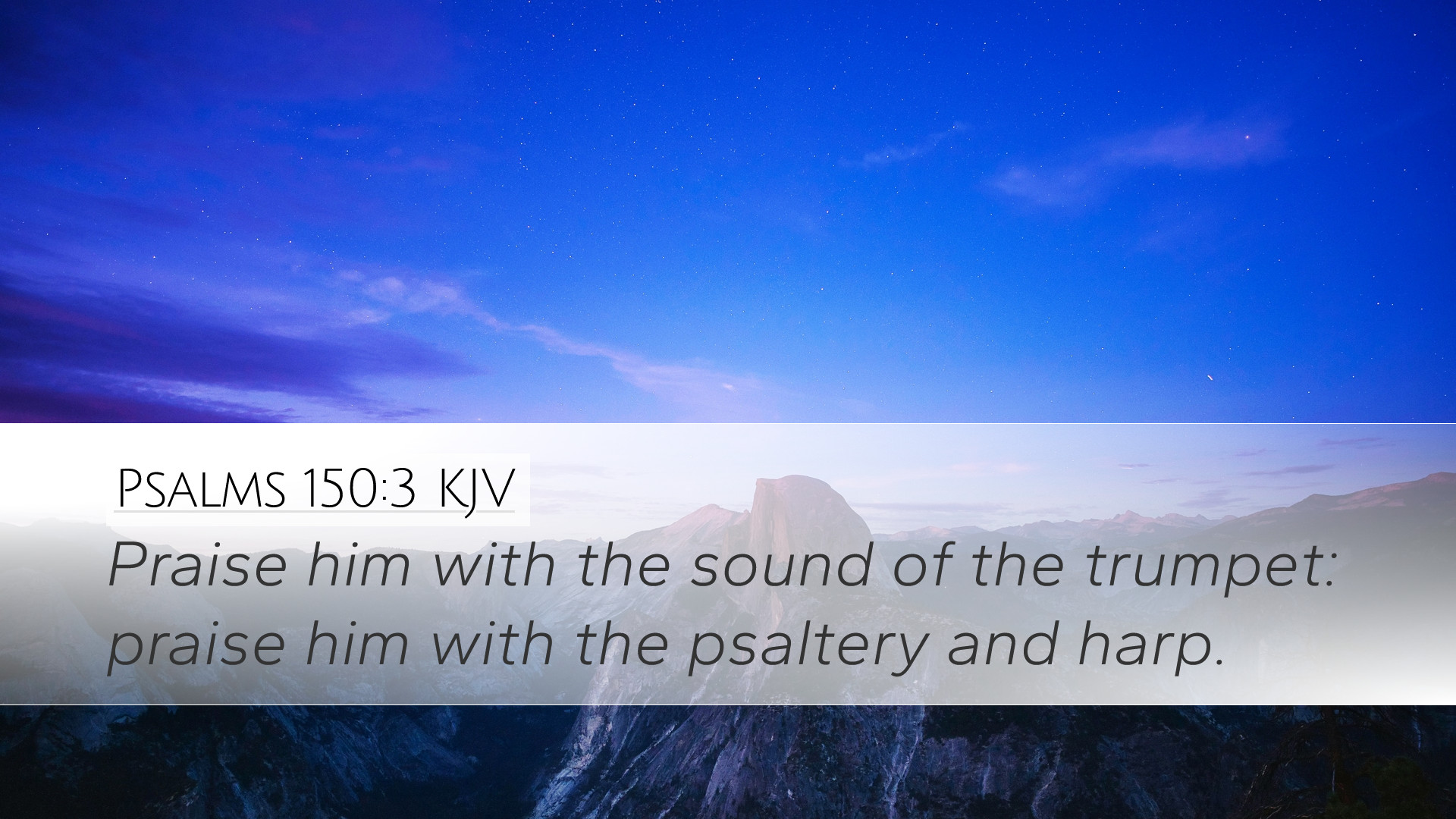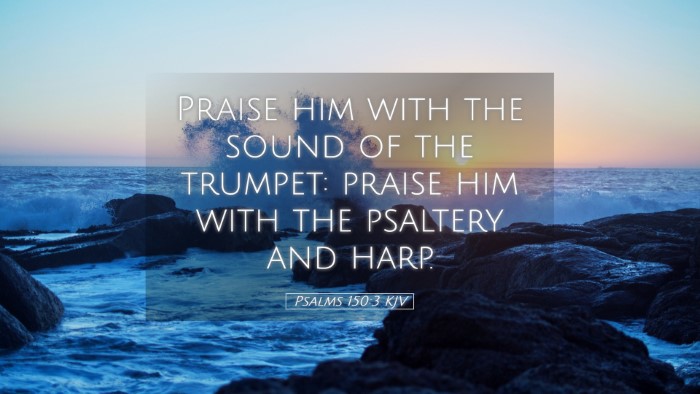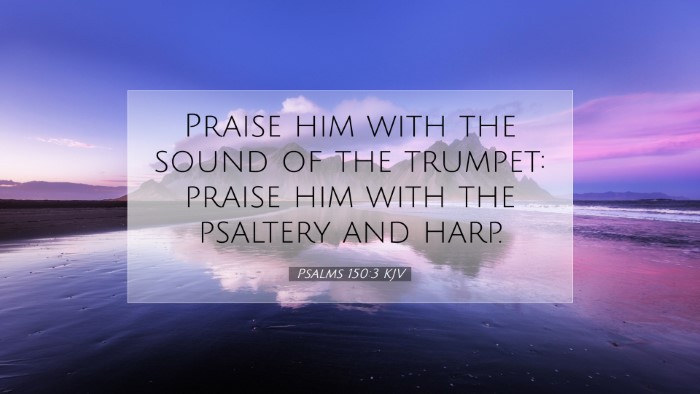Commentary on Psalms 150:3
Psalms 150:3 states, "Praise Him with the sound of the trumpet; praise Him with the lute and harp." This verse serves as an exhortation to worship God with various musical instruments, emphasizing the importance of praise in the life of the believer.
Introduction to Psalms 150
The last psalm in the Book of Psalms, Psalm 150, is a concluding doxology that encapsulates the essence of prayer and praise throughout the Psalter. It serves as a call to worship, highlighting the need for God’s people to openly express their gratitude and reverence through music and worship.
Mystical Use of Music in Worship
- Historical Context: Throughout the Scriptures, music has played a significant role in both private and corporate worship. The Israelites used various instruments to elevate their praises during sacrifices and festivals.
- Musical Instruments: The mention of the trumpet, lute, and harp signifies a range of musical talents and expressions that can be employed in worship. Each instrument carries its unique sound and connotation that can evoke different emotions and responses in the worshipper.
Insights from Commentators
Matthew Henry
Henry remarks that this psalm is all about praising the Lord for His greatness and majesty. He notes the diversity in the types of instruments used as a representation of the variety in God’s creation. This plurality in musical praise transcends cultural boundaries and speaks to the universal nature of worship.
Albert Barnes
Barnes emphasizes that the trumpet was often used in Israel to announce important events and to summon the people to worship. He interprets the sound of the trumpet as not only a call to praise but as a herald of the goodness and glory of God, encouraging believers to participate actively in worship by bringing their instruments before the Lord.
Adam Clarke
Clarke adds that the use of stringed instruments like the lute and harp reflects the deep emotional resonance that music provides. He suggests that worship cannot merely be an intellectual exercise; it must also engage the heart and soul. The beauty and intricacies of music, he argues, allow believers to connect with God on a deeper level.
Theological Reflections
- Expression of Emotion: The call to praise with instruments is an acknowledgment of the emotional aspect of worship. It recognizes that music can express feelings of joy, adoration, and reverence in ways that words alone may not fully capture.
- Unity in Diversity: The use of various instruments can be seen as a metaphor for the body of Christ, where each member, with unique gifts and talents, contributes to the collective worship of Him. This diversity glorifies God and showcases His multifaceted nature.
- Encouragement for All Believers: This verse serves as an encouragement for all believers to engage in worship, regardless of their musical ability. The call to use instruments in praise reminds us that worship is an act of the heart, not merely a performance.
Application for Modern Worship
As worship leaders and congregants seek to implement the principles found in Psalms 150:3, reflections from ancient commentaries can yield fruitful insights:
- Inclusivity in Worship: Church services today can strive for an inclusive culture where people feel free to use their musical gifts in praise, enhancing the worship experience for the entire congregation.
- Training and Equipping Musicians: The local church has the opportunity to support and equip musicians to grow in their craft, recognizing that their skills directly contribute to the worship environment.
- Creating Space for Personal Expression: Just as instruments are used to convey feelings, churches might create spaces within their worship services for personal expression, allowing members to engage more deeply with God.
Conclusion
Psalms 150:3 serves as a powerful reminder of the role of music in worship. As Matthew Henry, Albert Barnes, and Adam Clarke elucidate, praising God with diverse instruments not only enriches our worship but reflects the unity and diversity among believers. In a world that often tunes out the divine, this verse invites us to raise our voices and instruments in celebration of God’s glory. Therefore, let this scriptural exhortation resonate in our hearts, compelling us to engage joyfully and wholeheartedly in our worship practices.


